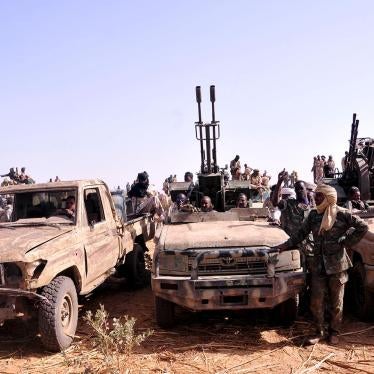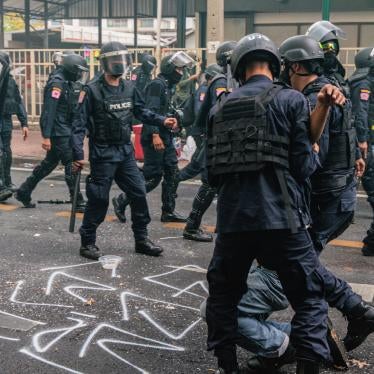The Bush administration's new energy policy proposes no strategy to keep energy investment from perpetuating dictatorships or fueling conflicts, as has happened from Angola to Sudan to Central Asia.
The report of the Bush administration's National Energy Policy Development Group, issued on May 17, urged making energy security a higher priority in U.S. foreign and trade policy, including in regions such as the Caspian Sea, Africa and the Middle East, where the wealth generated by energy development has encouraged corrupt autocracies to cling to power. The administration's report also called for a comprehensive review of existing sanctions against energy-producing countries.
"The Bush global energy policy totally ignores human rights," said Kenneth Roth, executive director of Human Rights Watch. "But energy development takes place in some of the most repressive countries in the world. The point of the strategy was supposed to be less dependence on foreign oil. It sounds like more deference to foreign despots."
In a letter to Vice President Richard Cheney, Human Rights Watch urged:
That basic standards of transparency and human rights be a condition for any financing the U.S. approves or supports through the Export-Import Bank, the Overseas Private Investment Corporation, and international financial institutions.
Audits of oil-rich states by the International Monetary Fund, as well as the use of human rights impact assessments for future energy projects.
Renewed U.S. support for voluntary standards of corporate responsibility in the energy sector, with EximBank and OPIC financing contingent on adherence to such standards.
Clarification from the Bush Administration as to whether human rights considerations will be downgraded in any review of sanctions against energy producing countries such as Burma and Sudan.






